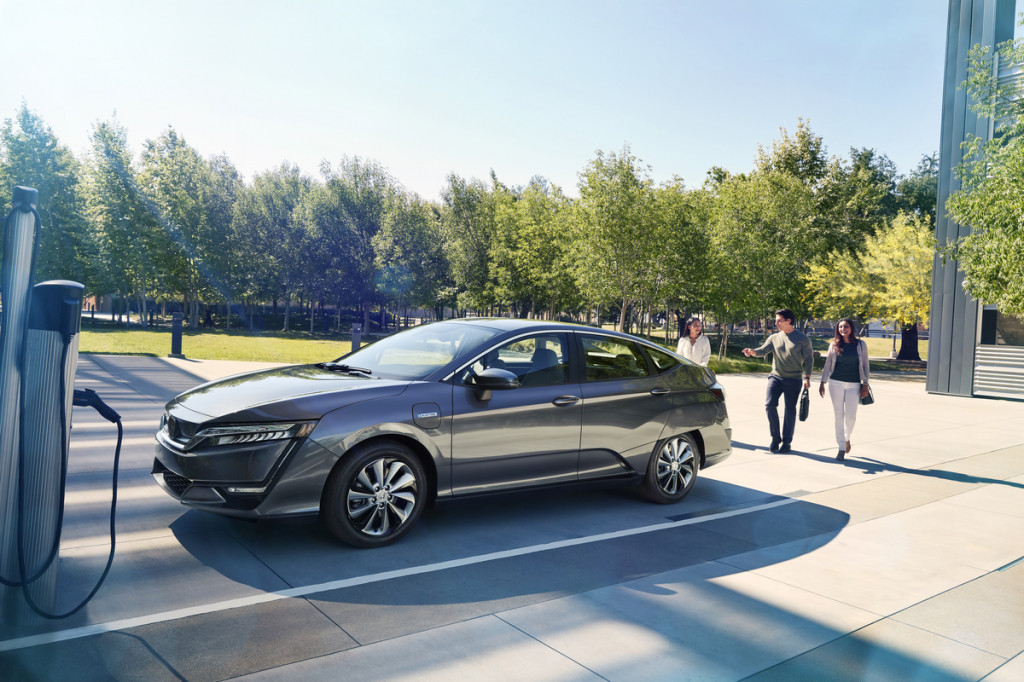More Americans think most cars will be able to drive themselves in 10 years than the number who think most cars will be electric in that time frame.
That's according to a survey released Thursday by AAA, the nation's leading automobile club and provider of roadside assistance.
According to the organization's latest Green Car Guide, only 40 percent think that most cars will be electric by 2029, while 50 percent told AAA in a survey in March that they thought most cars will be self-driving by then.
READ THIS: AAA says interest in electric cars rivals pickups: so where are the sales?
AAA puts the discrepancy down to misinformation about electric cars, and points to other survey findings that show consumers still harbor some misapprehensions about EVs. For example, 59 percent of consumers said they were unsure whether EVs had better range on the highway (like gasoline cars) or in the city. (Most are more efficient and can go farther in the city.) This demonstrates that Americans may have a steep learning curve when it comes to electric cars.
Those who said they wouldn't be likely to buy an electric car said gasoline would have to top $5 a gallon before they would give electric cars serious consideration.
"Like other new vehicle technologies, Americans don’t have the full story," about electric cars, says AAA Director of Automotive Engineering and Industry Relations Greg Brannon, "and that could be causing the gap between interest and action.”
DON'T MISS: Poll suggests more Americans might buy an EV—if only they had a place to charge
Last year, AAA's survey on American's attitudes toward electric cars showed that 16 percent of Americans—the same percentage who buy pickup trucks—said they would consider an EV for their next vehicle purchase.
This year, they found that interest remains steady, and that specific objections to buying an electric car are falling. For example, concerns about having too few places to charge and about running out of a charge while driving were each down 11 percentage points in this year's survey compared to last year. Concerns over the cost of repairing or replacing batteries were down 8 percentage points. And concerns about prices of EVs being higher than equivalent gas cars were down 6 percentage points.
Millennials and younger consumers expressed more interest in buying electric, citing environmental concerns and lower operating costs. Those willing to consider an electric car said they would be willing to pay an extra $4,000 for one, compared with a conventional car.

2019 Honda Clarity Electric
More consumers were optimistic about self-driving cars, even though no autonomous cars are yet available for consumers to buy. More than half think that the majority of cars on the road in 10 years will be able to drive themselves, even though 71 percent of Americans also told AAA in March that they would be afraid to ride in such a vehicle.
Widespread adoption of electric cars is likely to precede widespread use of self-driving cars, because most self-driving cars are likely to be electric, Brannon notes.
CHECK OUT: How many Americans will buy an electric car in the next 5 years? Twitter poll results
"These vehicles are a big part of the future of transportation since self-driving cars, when they do arrive, will likely be electric,” he said. “The difference, of course, is that electric vehicles are already here and with the advancements in style and range that have been made over the last few years, they have become an even more viable option for many Americans.”
Megan McKernan, manager of AAA's Automotive Research Center, adds, "Consumers may not realize it, but they have many options when it comes to shopping for an electric vehicle."












